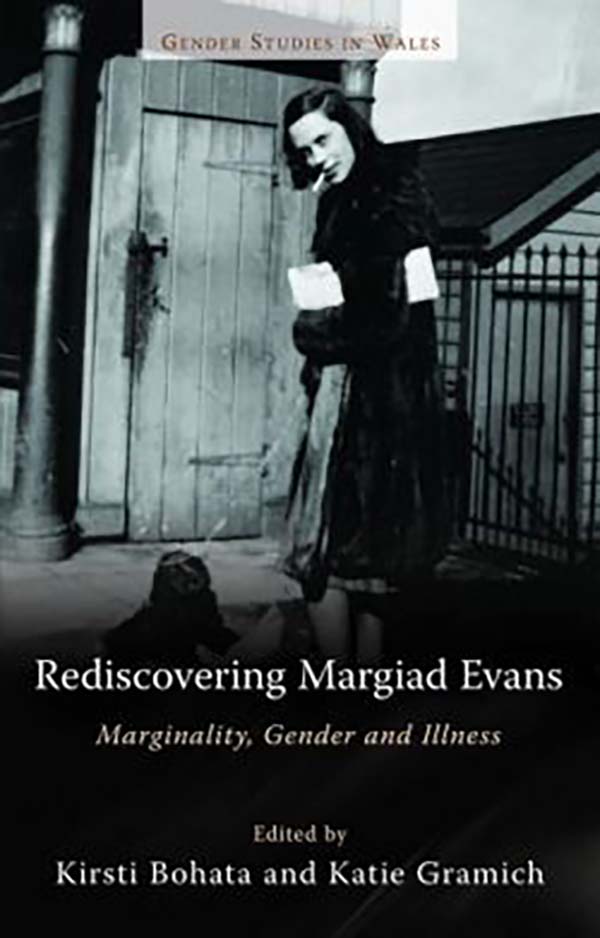Rediscovering Margiad Evans
Marginality, Gender and Illness
Editor(s) Kirsti Bohata,Katie Gramich
Language: English
Genre(s): Literary Criticism, Gender Studies
Series: Gender Studies in Wales
- February 2013 · 288 pages ·216x138mm
- · Paperback - 9780708325605
- · eBook - pdf - 9780708325612
- · eBook - epub - 9780708326893
This collection of essays rediscovers and reassesses the extraordinary literary legacy of the border writer, Margiad Evans (1909-48) - novelist, poet, short story writer and autobiographer.
This is an excellent collection of essays on the early twentieth-century writer, Margiad Evans, a distinctive and original writer whose talent has been little recognized. The contributors draw on a wealth of undiscovered archival resources in this scholarly and engaging account of many different aspects of Evans's life and work, including her identity as a woman, her epilepsy and medical condition, and her gothic imagination. Professor Mary Joannou, Professor of Literary History and Women's Writing, Anglia Ruskin University This is an important book, and an interesting one. The contributors include many of the most distinguished scholars of Welsh Writing in English, and between them they do a marvellous job of remembering Margiad Evans, an author for whom memory was centrally important. Evans's very liminality has seen her disappear between the cracks of a number of scholarly preoccupations, squeezed out of literary history by masculinist and high-culturalist assumptions about Modernism, and by colonialist assumptions about Wales. The rigid thinking of conventional literary aesthetics has done Margiad Evans a great disservice, and the editors and contributors to this book have done wonders to redress this. Professor Darryl Jones, School of English, Trinity College Dublin
1.Kirsti Bohata and Katie Gramich, Introduction
2.Ceridwen Lloyd Morgan, The Archivist's Tale: primary sources for the study of Margiad Evans
3.Diana Wallace, 'Two nations at war within it': marriage as metaphor in Margiad Evans's Country Dance
4.Lucy Thomas, ‘Born to a million dismemberments’: female hybridity in the border writing of Margiad Evans, Hilda Vaughan and Mary Webb
5.Katie Gramich, Gothic Borderlands: the hauntology of place in the fiction of Margiad Evans
6.Tony Brown, Time, Memory and Identity in the Short Stories of Margiad Evans
7.M. Wynn Thomas, Margiad Evans and Eudora Welty: a confluence of imaginations
8.Kirsti Bohata, The Apparitional Lover: homoerotic and lesbian imagery in the writing of Margiad Evans’
9.Andrew Larner, A ‘Herstory’ of Epilepsy in a Creative Writer: the case of Margiad Evans
10.Karen Caesar, Warding off the Real: The recreation of self in Autobiography and A Ray of Darkness
11.Clare Morgan, 'The Human Tune': Margiad Evans and the frustrating fifties
12.Sue Asbee, ‘Not quite every character is a living person in this story. And not quite the reverse.’ Margiad Evans: Memory, fiction and autobiography
13.Moira Dearnley, ‘Eternity is now my mood’: a view of the later writings of Margiad Evans
Author(s): Kirsti Bohata
Kirsti Bohata is Professor of English and co-director of the Centre for Research into the English Literature and Language of Wales, Swansea University.Author(s): Katie Gramich
Dr Katie Gramich is Professor in English Literature at Cardiff University.

